In crises the most daring course is often safest
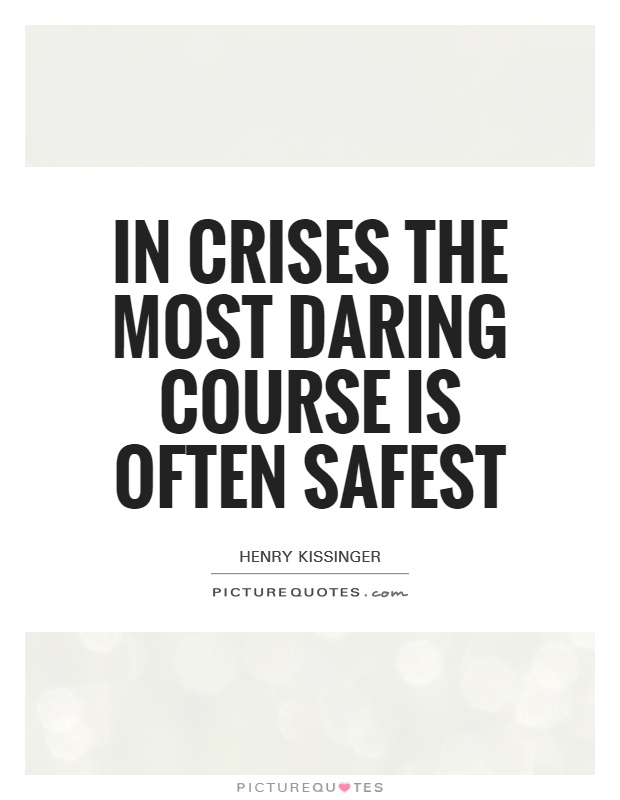
In crises the most daring course is often safest
Henry Kissinger, a renowned American diplomat and political scientist, is often associated with the quote, "In crises the most daring course is often safest." This statement encapsulates Kissinger's approach to diplomacy and foreign policy, which was characterized by bold and unconventional decision-making in times of crisis.Throughout his career, Kissinger faced numerous international crises, including the Vietnam War, the Arab-Israeli conflict, and the Cold War. In each of these situations, he demonstrated a willingness to take risks and pursue innovative solutions, even when faced with overwhelming challenges and opposition.
One of the most notable examples of Kissinger's daring approach to crisis management was his secret negotiations with Chinese officials in the early 1970s. At a time when the United States and China had no formal diplomatic relations and were engaged in a bitter Cold War rivalry, Kissinger saw an opportunity to open up dialogue and establish a new strategic partnership. Despite the risks involved in engaging with a communist adversary, Kissinger believed that the potential benefits of improved relations outweighed the dangers.
By taking the bold step of reaching out to China, Kissinger was able to lay the groundwork for President Richard Nixon's historic visit to Beijing in 1972, which marked the beginning of a new era in U.S.-China relations. This diplomatic breakthrough not only helped to ease tensions between the two superpowers but also paved the way for future cooperation on a range of global issues.
Kissinger's willingness to embrace risk and pursue unconventional strategies in times of crisis set him apart as a visionary leader in the field of international relations. While his approach was not without controversy and criticism, his boldness and creativity ultimately proved to be effective in resolving complex and intractable conflicts.

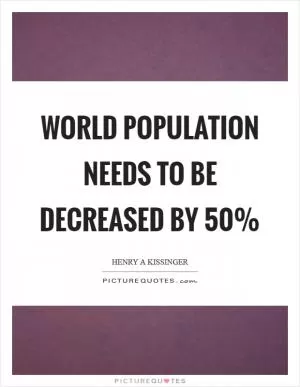
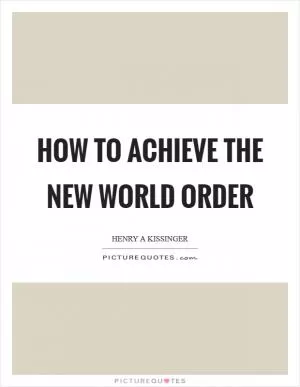
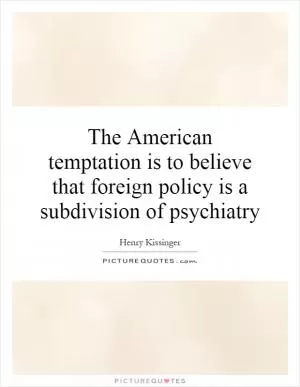
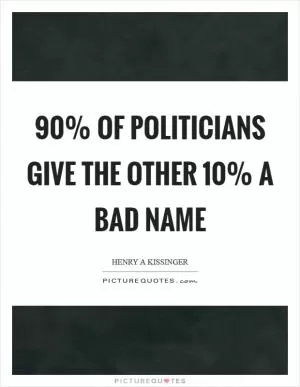
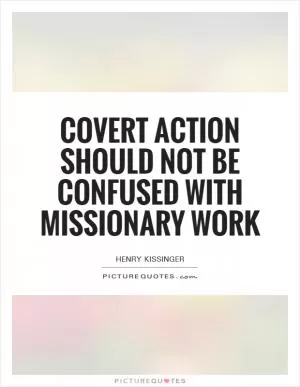


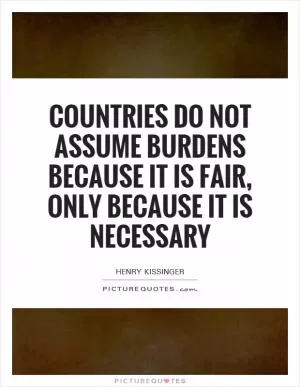

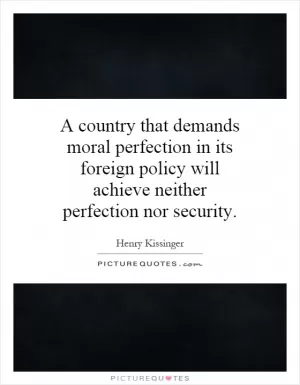

 Friendship Quotes
Friendship Quotes Love Quotes
Love Quotes Life Quotes
Life Quotes Funny Quotes
Funny Quotes Motivational Quotes
Motivational Quotes Inspirational Quotes
Inspirational Quotes